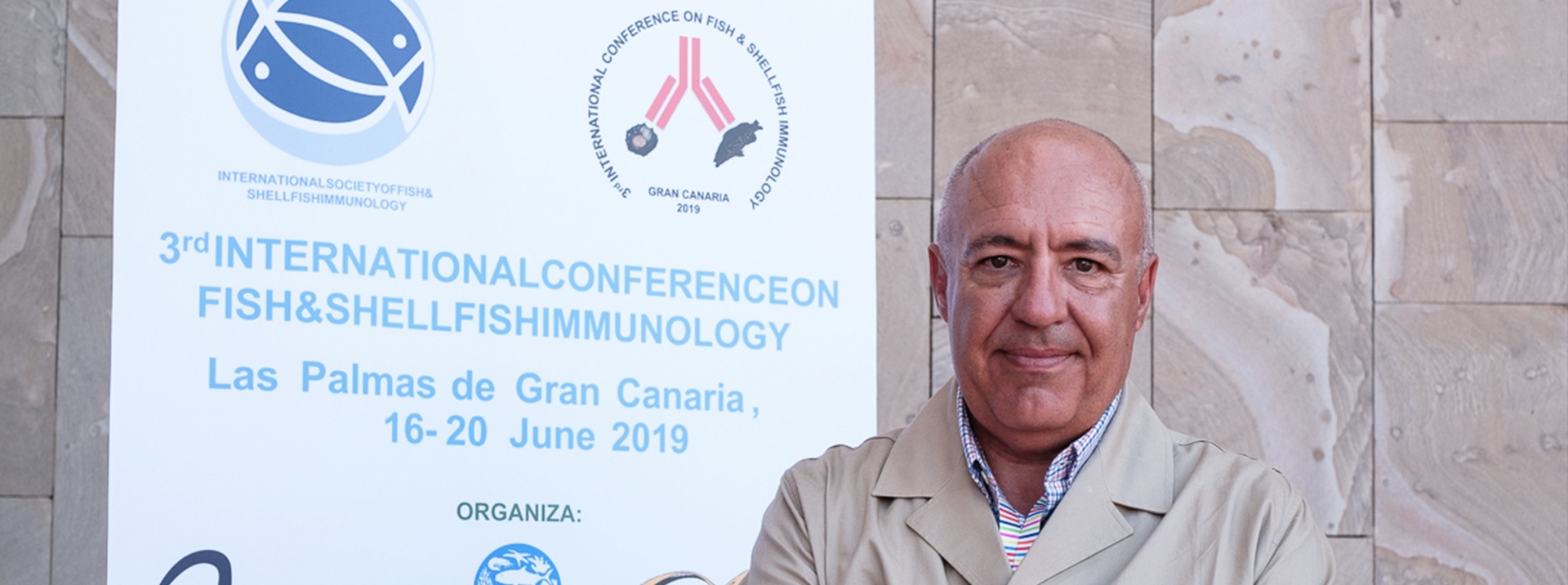In the waters of the Canary Islands, sea bass and sea bream are mainly reared, and pilot crops of corvina, medregal, tilapia and sole have been made. With these species, mainly affected by pathologies of bacterial origin, different lines of research are being carried out by the University Institute ECOAQUA of the ULPGC focusing on the reinforcement of their immune system during the larval and fattening phase
Canary Islands marine aquaculture companies turnover at first sale about 38 million euros annually, concentrating about 14% of turnover in Spain, a figure that amounts to 270 million in the total state. It is mollusc farming that concentrates around 80% of national production, while fish farming accounts for the remaining 20%.
Although it is the star product, in the Islands orographic conditions do not favour mollusc farming due to the lack of bays that can function as natural fishing grounds, as off-shore production for these species is not sustainable. This is why companies in the Archipelago specialise mainly in the breeding of sea bass and sea bream, working in parallel on pilot projects with other types of fish such as corvina, medregal, tilapia or sole.
The development of the immune system of fish during the larval and fattening phases, through the application of vaccines and natural medicinal methods based on plant extracts, can avoid the use of drugs in 90%, says Felix Acosta, president of the organizing committee of the Third International Conference on Immunology of Fish and Molluscs. "All this will also favor," he says, "that the product intended for human consumption is of higher quality.
There are more and more residues of pharmaceuticals and personal care products in aquatic ecosystems, and there is growing concern, both from the scientific community and society, about the side effects that can cause both in the fauna of our seas and oceans, and in humans themselves by the consumption of fish, molluscs and crustaceans whose organisms are affected by their ingestion. To this we must add the onslaught of multiple diseases that can affect aquatic species. In Spain, the pathologies that most affect are of viral and bacterial origin, while in the Islands they are mainly of bacterial character those that more affect the two species that are treated, the sea bass and the sea bream.
The study of new formulas to treat these species in a preventive way is the main reason that brings together more than 200 scientists and industry agents until next Thursday in Gran Canaria, in an event organized by the Aquaculture Research Group (GIA) of the University Institute of Aquaculture and Sustainable Marine Ecosystems (ECOAQUA) of the University of Las Palmas de Gran Canaria (ULPGC), in collaboration with the International Society for Fish and Mollusc Immunology (ISFSI).
In the Canary Islands, aquaculture began to develop in the 80's, but it was not until the end of the 90's when this productive system, focused almost exclusively on fish breeding, was established as an industry, starting to develop facilities not only in Tenerife and Gran Canaria, but also in Lanzarote and La Palma. It is these four islands that today concentrate the aquaculture companies in the Archipelago. In terms of direct employment generation, the sector employs 2,354 people nationwide, a figure that translates into 280 jobs in the Archipelago.
Research in the field of aquaculture in the Islands began with the diagnosis of animal health problems presented by fish raised in fish farms. Once these bases were established, some ten years later, efforts have focused on immunology, with the University Institute ECOAQUA currently leading, through GIA, research projects in animal health in aquaculture in the Archipelago.
Third International Conference on Fish and Mollusc Immunology
During the Third International Conference on Fish and Mollusc Immunology 139 oral communications and 87 posters will be presented, which will provide a key network and educational interface for the different actors involved in the industry, the scientific community, health care providers and independent research organizations to work together.
This is the third triennial symposium sponsored by ISFSI. The Society's first conference was held in Vigo, Spain, in June 2013 and the second conference was held in Portland, Maine, USA, in 2016.
The main sponsor of this congress is the Seppic laboratory of the Air Liquide Group, and the Chilean laboratory Pathovet, the company VWR and the Canarian companies ADDIAGNOST, BIOTEIN, BIOSIGMA have also collaborated. Elsevier and The Fisht Site platforms, the Bioasis Gran Canaria initiative, managed by the Sociedad de Promoción Económica de Gran Canaria (SPEGC) of the Cabildo Insular, and the Gran Canaria Convention Bureau have also participated as partners in the congress.


